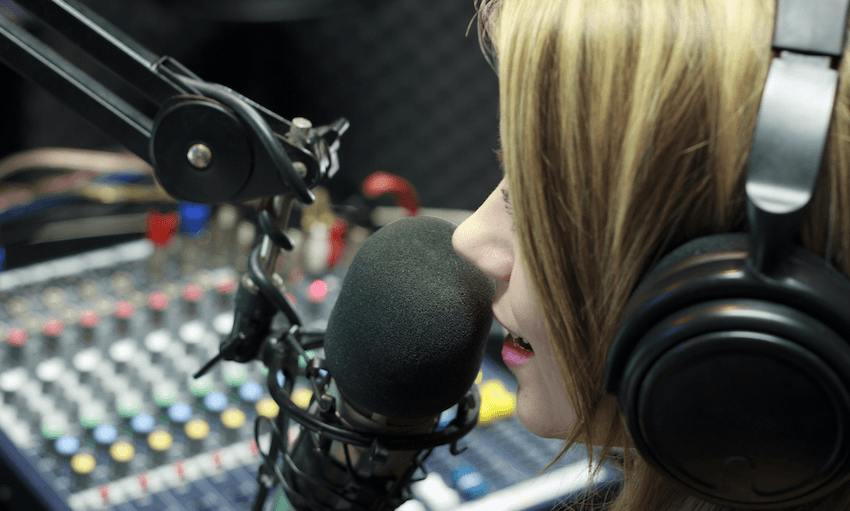Advertising doesn’t have to ruin a radio station, says former bFM programme director Bill Kerton. In fact, it can make it stronger.
In the mid 1990s I found myself programme director at Auckland’s 95bFM. You couldn’t have found a more intense, dedicated group of creative, free thinking, anti-establishment wankers if you tried – yet we courted advertisers and sponsors enthusiastically, so long as they agreed to being promoted ‘our way’, for our audience. Energy, ideas and commitment made it work, and paid relatively substantial dividends.
95bFM carried advertising because we were allowed to, we were expected to, and it bought all the toys and salaries we needed to not only occupy but expand our rohe to its natural limit. We did this unashamedly, to the point proper grown up radio stations looked at our numbers and started scratching their heads.
Our listeners (who were, and remain, at least as discerning as an RNZ listener), not only tolerated our very entertaining commercials, they would routinely request to hear them instead of the latest banger.
95bFM has been a breeding ground for many household names, but its copywriters were head-hunted by major agencies and went on to great things too. Indeed, RNZ’s own Wallace Chapman was a copywriter at the station once, and a damned fine one too.
With that in mind, here are a few key reasons why RNZ should consider changing the policy of a lifetime, and open up its airwaves.
1. Good commercials are an art form
They are some of New Zealand’s best-loved moments in broadcasting. The genius is in the way creatives can distill an entire culture or trend into a 15 or 30 second spot, along with the advertiser’s message.
The worry would be RNZ’s hallowed output becoming infested with big box retailers or fast food chains. This isn’t automatically the case – the station can engineer a charter (as 95bFM did) to declare what is and is not appropriate to advertise, and also insist writing and production is done in-house – and guard that jealously. Advertising can be whatever programming says – so long as programming retains the upper hand over sales.
2. The public might be grateful
These are financially straitened times, as RNZ itself reminds us of every day – so what better signal to send to the seven in eight New Zealanders who don’t listen to RNZ than making savings which either reduce the dependence on the state, or allow for it to expand its services.
3. Advertising has a habit of fine-tuning the programme
I can tell you it’s difficult to champion a show that nobody wants to sponsor. It’s one way to deduce what is self-indulgent – and I contend that in some areas RNZ produces content of interest to perhaps the producer and ten other people. That doesn’t mean to say the popularity of a show or its contents should drive programming decisions – but it’s a useful tool.
4. It’s an opportunity to get ahead of political threats
National might encourage RNZ to run advertising to pay its own way. A perceived bonus could be that commercialisation is a way of integrating right-leaning people into that organisation. This would suck more oxygen from already gasping broadcasters, however National tends to be more hands-off, letting the market take care of itself.
But a Labour-led government may not provide safe haven either, if the economy goes south. I well remember consternation from the public radio sector when the fourth Labour government sold FM frequencies to private operators – who quickly outcompeted the state ones. In the short term, I have a feeling the Ardern’s government wants broadcasting back, especially when rumour suggests a fully-costed plan for a new youth radio network is already with the broadcasting minister – about the last thing the embattled independents need.
5. Do it yourself, before it gets done to you
Broadcasting is always changing. From the introduction of the new, private FM stations, to amalgamation and networking, to the Internet – the only constant is content.
In the 1980s, Federated Farmers tried to convince then-PM Rob Muldoon to reduce subsidies for farmers, as the danger of relying on them was clear. Muldoon, telling Sir Peter Elworthy “take your subsidies and run”. Many farmers eventually went to the wall because when change came, it came too quickly for them to adapt.
RNZ is in the enviable, or unenviable, position of being perhaps the last state asset whose product is not monetised – but could be. To me, it’s a lone penguin standing on a little ice floe. Rather magnificent, but perhaps not seeing the beady eyes gazing from underwater.
If RNZ considers advertising, convinces its masters, and does it to themselves before it gets done to them it gets to control and own how it happens. RNZ produces a high quality product, and three or four minutes of well-made advertising out of 60 can’t destroy that.
Would listeners switch on hearing commercials? It seems unlikely. The most similar station is probably Newstalk ZB. Yet the attitude of of RNZ listeners toward the station can be summed up by three words the Topp Twins recently blurted to rioting Concert FM listeners: “Fuck Mike Hosking!” Would RNZ staff and presenters leave their coveted posts? They’d be fools to – nowhere else in broadcasting offers similar roles or conditions.
Section 8C of RNZ’s charter states that the network must be commercial free, but the House of Representatives is bound to review this periodically. And it’s up for review in 2021. Perhaps it’s time, in the midst of all this upheaval at RNZ, for its most sacred rule to be challenged.




